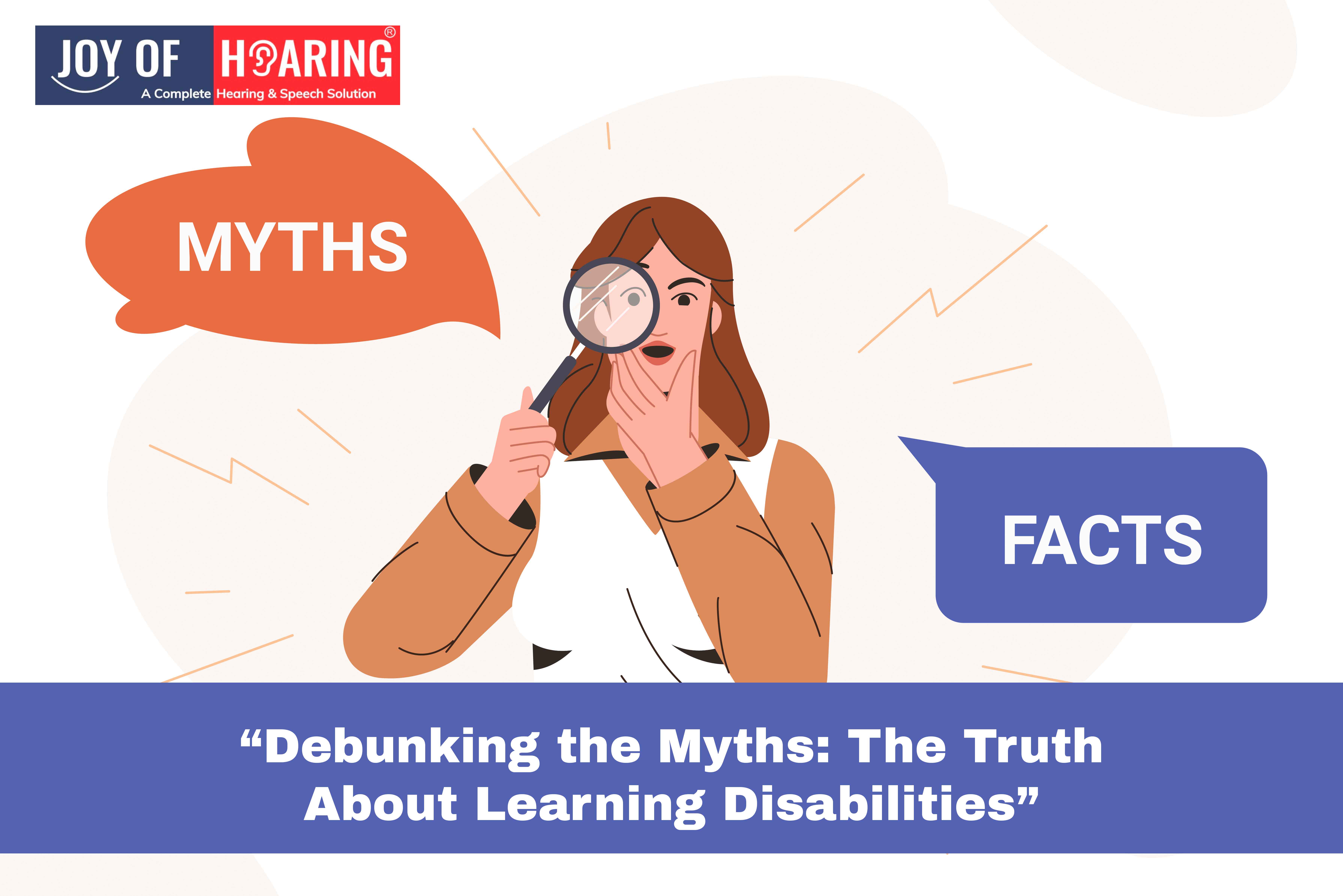
In today's world, awareness of learning disabilities is growing, but misconceptions still abound. These myths can create unnecessary barriers for individuals with learning disabilities, leading to misunderstanding, stigma, and missed opportunities. In this blog, we aim to separate fact from fiction and provide a clearer understanding of what learning disabilities truly entail.
Myth 1: Learning Disabilities Are Linked to Low IntelligenceFact:
One of the most prevalent myths is that learning disabilities are a sign of low intelligence. In reality, learning disabilities have nothing to do with a person's intelligence. Individuals with learning disabilities can be just as smart or even smarter than their peers. These challenges simply mean that the brain processes information differently, making certain tasks more difficult, but not impossible.
Fact:
Learning disabilities are lifelong conditions. While they don't disappear with age, the good news is that with proper support, strategies, and accommodations, individuals can learn to manage and overcome their challenges. Early intervention and consistent support are crucial in helping those with learning disabilities reach their full potential.
Fact:
Learning disabilities are as diverse as the individuals who have them. They encompass a range of challenges, from dyslexia (difficulty with reading) to dyscalculia (difficulty with math) to dysgraphia (difficulty with writing). Each person's experience with a learning disability is unique, requiring personalized strategies and interventions.
Fact:
Learning disabilities are not caused by how a child is taught or raised. They are neurological conditions, often rooted in differences in brain structure or function. While a supportive environment is essential for success, it’s important to understand that these challenges are not the result of inadequate teaching or poor parenting.
Fact:
This myth couldn't be further from the truth. Many successful individuals, including scientists, entrepreneurs, and artists, have learning disabilities. With the right support and determination, people with learning disabilities can achieve their dreams and make significant contributions to society. Their unique perspectives and problem-solving abilities often lead to innovative solutions.
It's time to break down the myths and embrace the facts about learning disabilities. Understanding the realities of these conditions helps create a more inclusive and supportive environment for everyone. By fostering awareness and providing the necessary support, we can empower individuals with learning disabilities to thrive and succeed in all areas of life. Remember, a learning disability is not a barrier to success—it's simply a different way of learning and living.